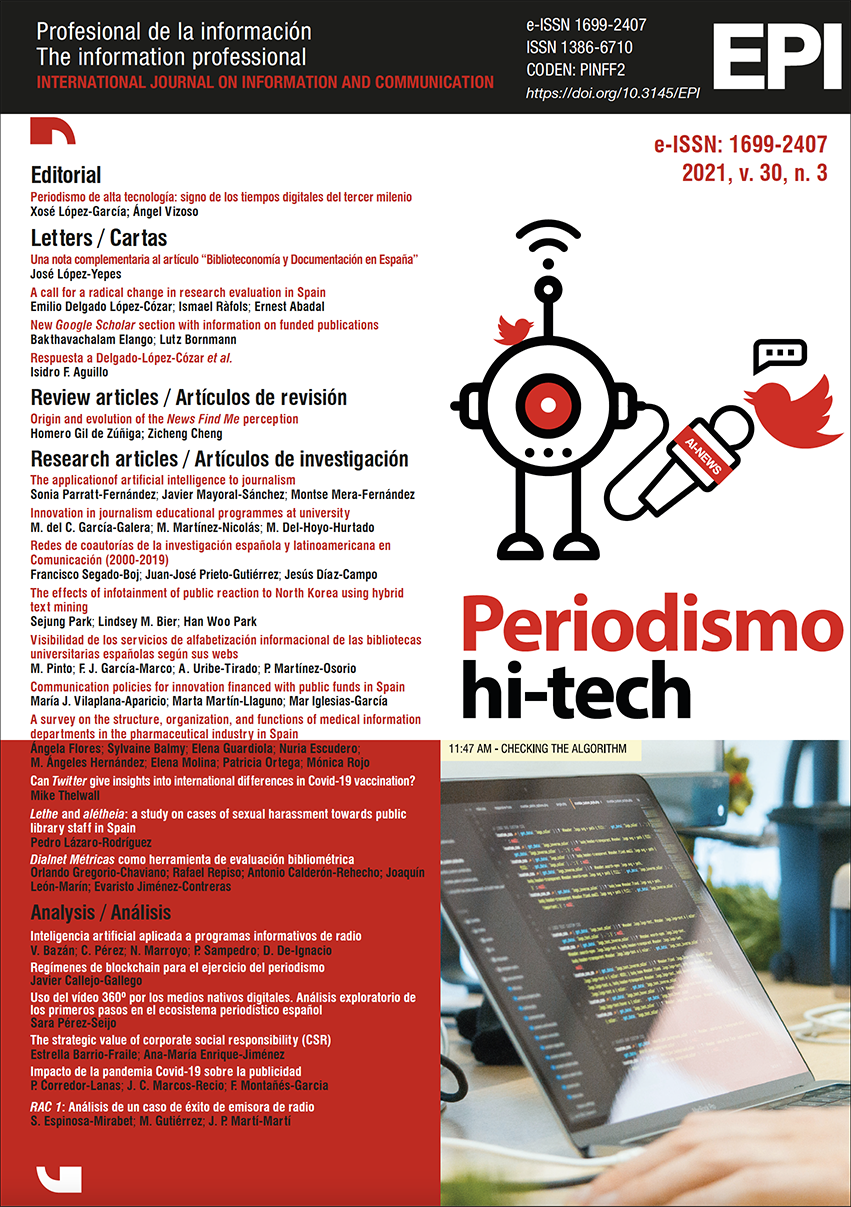Impact of the Covid-19 pandemic on advertising: Spain as a laboratory for communication trends during a crisis
DOI:
https://doi.org/10.3145/epi.2021.may.13Keywords:
Covid-19, Coronavirus, Crisis, Advertising, Integrated advertising, Advertising investment, Media, media consumption, AudienceAbstract
The economic crisis caused by the Covid-19 pandemic has severely affected the advertising industry worldwide, but the Spanish case can be seen as a particularly privileged laboratory for such observations as a result of the collapse of investments and their redistribution to other time periods, economic sectors, or communication channels. The aim of this research is, firstly, to estimate the impact of the crisis on advertising investment, and secondly to analyze its consequences for the media system and new consumption dynamics. We carry out a comparative analysis of secondary data from national and international sources which enjoy broad business and social consensus, covering the period of the first wave of the pandemic in Spain (March-September 2020). The results enable the identification of the ongoing transformations and an outline of new scenarios for the advertising industry and media business. These scenarios are still under construction and feature a predominance of digital media and the Internet, but also a conjunction with television and its new formats and audiences. Among the most relevant findings of this research, we observed unexpected contradictions in advertising behavior. These include the first breakdown of advertising seasonality since measurement data exist in Spain, and a paradoxical, sharp rise in media use in conjunction with the collapse of advertising expenditure.
Drawing on international and Spanish data accepted by a majority of social and business sectors, the analysis also makes it possible to identify the inter-relations between the economy and advertising, such as the sharp drop in investment in the sectors most affected by the lockdown measures, or in contrast, the paradoxes and contradictions in advertising, such as the distortions between investments, which were in freefall, while media consumption rose steeply during the crisis.
However, this preliminary study calls for more intensive research on the future relationship between advertising and the economy. That is because earlier studies on advertising and economic crises cannot be directly extrapolated to a health crisis and its impact, either in terms of relevant circumstances or regarding the pace and timeframe of its recovery. And because dominant economic policies have moved from focusing on austerity (crisis of the 1990s, major crisis in 2008) to a dominant consensus over the potential and the positive effects of public spending.
Downloads
Downloads
Published
How to Cite
Issue
Section
License
Dissemination conditions of the articles once they are published
Authors can freely disseminate their articles on websites, social networks and repositories
However, the following conditions must be respected:
- Only the editorial version should be made public. Please do not publish preprints, postprints or proofs.
- Along with this copy, a specific mention of the publication in which the text has appeared must be included, also adding a clickable link to the URL: http://www.profesionaldelainformacion.com
- Only the final editorial version should be made public. Please do not publish preprints, postprints or proofs.
- Along with that copy, a specific mention of the publication in which the text has appeared must be included, also adding a clickable link to the URL: http://revista.profesionaldelainformacion.com
Profesional de la información journal offers the articles in open access with a Creative Commons BY license.




